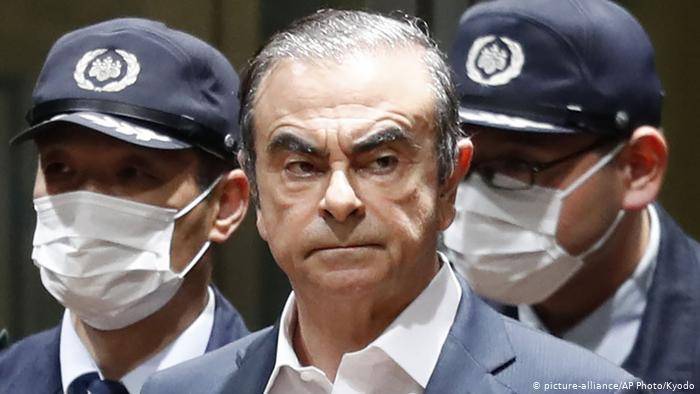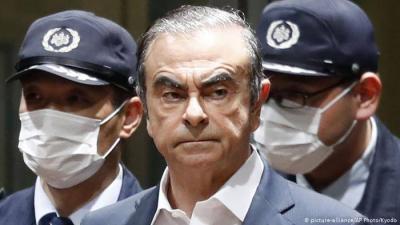Carlos Ghosn, the former CEO of Nissan, did not wait long before executing his escape plan, which involved hiding inside a music instrument case as a last-minute decision before the flight's departure. Ghosn recounts that he entered the case at 10:30 PM on a cold December night in 2019, shortly before his flight was scheduled to take off at 11 PM. This came after Ghosn was arrested in November 2018, accused by Nissan of underreporting his annual salary and misusing company funds, allegations he has repeatedly denied, according to BBC.
Ghosn described the moment of his arrest at Tokyo airport three years ago as feeling like "a bus hit you or something extremely painful happened." He was taken to a detention center in Tokyo, where he received prison clothes and was held in a cell, saying, "Suddenly, I had to learn how to live without a watch, a computer, a phone, news, or a pen - without anything." For over a year, Ghosn spent long periods in detention or under house arrest in Tokyo after being released on bail. It was unclear when he would go to trial, and he feared that it could take years, facing up to another 15 years in prison if convicted, in a country where the conviction rate is 99.4%.
Ghosn decided to find an escape route during his house arrest when he was informed that he would not be allowed any contact with his wife, Carole. He explained, "The plan was to hide my face, so I had to hide somewhere. The only way I could hide was to be inside a box or inside a suitcase, so that no one could see me, and no one could recognize me, and the plan would succeed." He added that the idea of using a large box usually containing musical instruments made more sense, especially since there were many concerts taking place in Japan at that time.
His fame from previous successes and sudden downfall presented new difficulties for escaping or avoiding detection, making the transition from his home in Tokyo to the airport challenging. According to Ghosn, the plan was for everything to appear normal before suddenly changing, as he would take walks, exercise, and shop before starting his escape. He also had to change his suits, which he had worn for years as a high-ranking executive in the global automotive sector, to something more casual, opting for jeans and sneakers. In a documentary titled "Storyville: Carlos Ghosn - The Last Flight," he said, "You can imagine I had to go to places I had never visited before and buy clothes I had never purchased before."
From Tokyo, Ghosn traveled by bullet train to Osaka, where a private plane awaited him at a local airport for departure. However, prior to that, he needed to enter a box located in a nearby hotel. He stated, "When you enter the box, do not think about the past, do not think about the future, just think about the moment you are living in." He added, "I am not scared; there are no emotions except a great focus on 'this is your chance, do not waste it. If you waste it, you will pay for it with your life, living hostage in Japan.'"
Ghosn was transported from the hotel to the airport by two men, Michael and Peter Taylor, who were impersonating musicians. Ghosn estimates he remained in the box for about an hour and a half, although it felt like "a year and a half." The private plane took off on schedule, and Ghosn, now free, flew at night, transferring in Turkey before landing in Beirut the next morning. Due to the absence of an extradition agreement between Lebanon and Japan, Ghosn was allowed to stay, even though the U.S. has since extradited American citizens Michael Taylor and his son Peter to Japan, where they face a three-year prison sentence for aiding Ghosn's escape. Former Nissan colleague Greg Kelly is also facing prison time and remains under house arrest in Tokyo for allegedly helping his former boss conceal his earnings, an allegation Kelly denies.
As for those left behind in Japan, Ghosn stated, "I learned that Greg Kelly's trial will likely conclude by the end of this year. God knows what the outcome of this fraudulent charge will be." He added, "I feel sorry for all the people who fell victim to the justice system in Japan."




